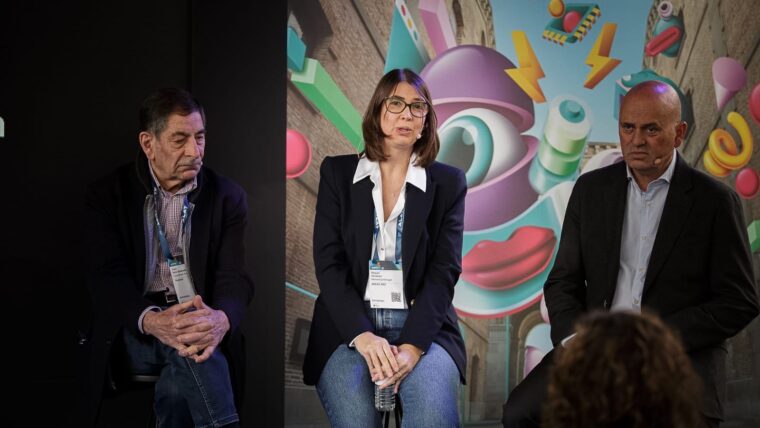Innovation and sustainability of Barcelona’s food sector, at the MWC 2025
On Monday 3 March, the alliance between new technologies and Barcelona’s food sector was in the spotlight at the Beat Barcelona space in the Mobile World Congress 2025. Under the heading ‘Technology at the service of gastronomy to achieve quality service with sustainability criteria’, Raquel Giménez, head of Marketing for Spain at AREAS; Joan Soler, from Töufood, and Iñaki Gorostiaga, director of the Barcelona School of Cookery, Hotel Management and Catering (ESHOB), shared their experiences at the forefront of various projects in the sector to show how the Catalan capital is making the most of the potential of new technologies to improve the restaurant sector. The discussion was moderated by food journalist Laura Conde.

During the talk, Raquel Giménez from AREAS, spoke about the SELF project. She began by announcing that “this is the world’s first AI-powered robotic restaurant to be opened in an airport, and it’s being opened here in Barcelona”. SELF is a concept designed and developed by AREAS to offer travellers a different kind of experience, using a robotic arm with a claw and five tactile fingers that manages and delivers orders seamlessly. “It always does so with the held of a human person, because the expertise and quality of our team is irreplaceable”, she pointed out. SELF is equipped with advanced artificial intelligence, learning and making optimal decisions in real time and with an artificial vision camera which enables it to “see” and adapt to its surroundings to improve the quality and speed of the service.
Joan Soler then spoke about the work carried out by TöuFood. “You might not know us, but I’m sure you will have eaten a product that uses our technologies”, he announced to the auditorium at the start of his presentation. TöuFood has created a complete line of high quality products that enable the application of the most popular techniques in contemporary cuisine. Its most notable products include enzymes such as amylase, that speeds up chemical reactions and helps to break down complex carbohydrates such as starch into dextrins and simple sugars, adding natural sweetness and improving fermentation; cellulase, which breaks down the cellulose found in fruit and vegetables, clarifying juices and softening textures; pectinase, which breaks down pectin, helping to clarify juices and giving fruits and vegetables a softer texture.
Finally, Iñaki Gorostiaga, director of the Barcelona School of Cookery, Hotel Management and Catering (ESHOB) explained how life at the centre has changed with the introduction of a technological platform that speeds up administrative procedures such as enrolment on the courses they offer. “What’s more, we have updated the offer at ESHOB with the introduction of new courses such as photography classes, because we know it is important to cook, but it is also important to communicate”, he said.
